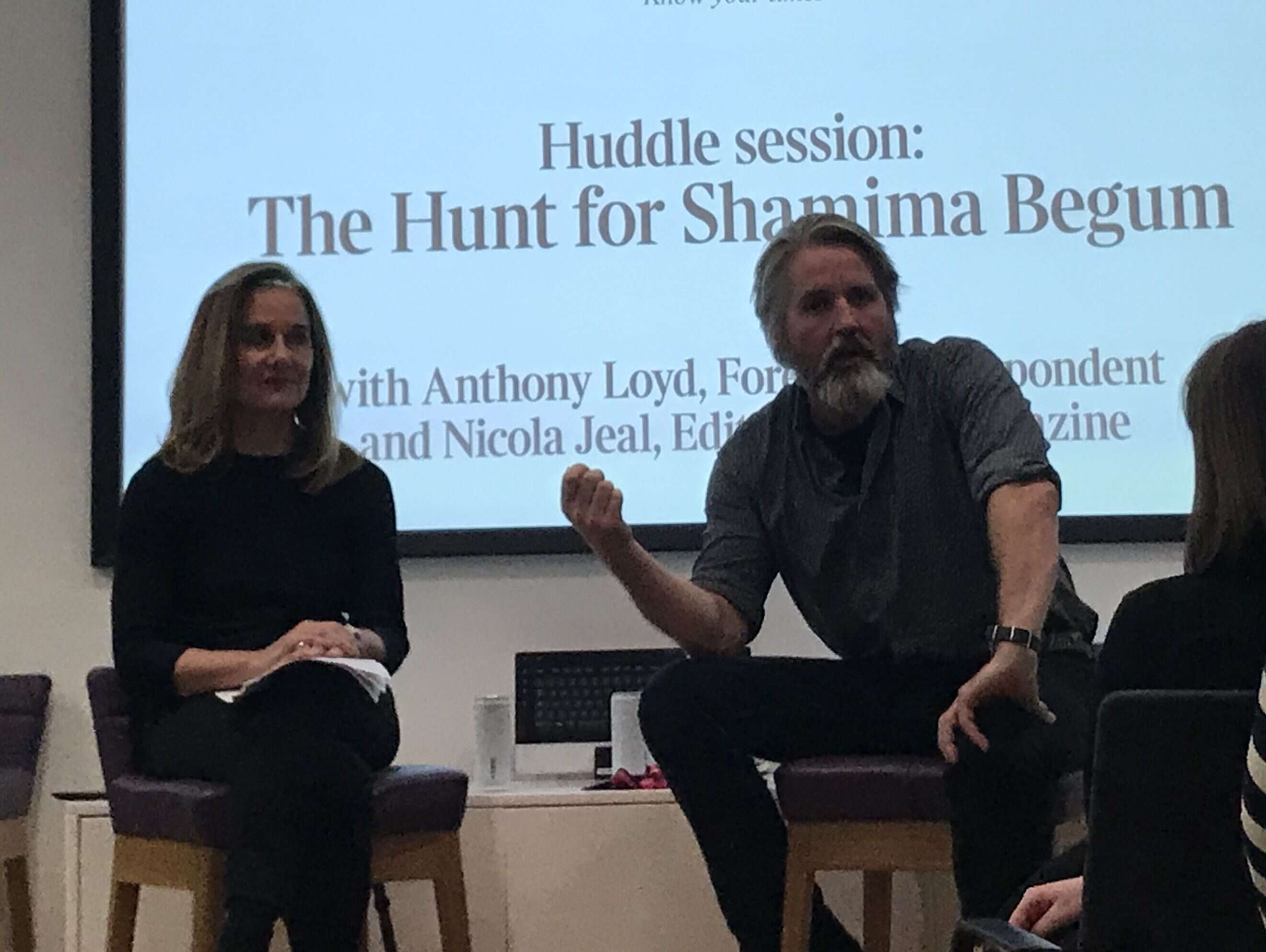
The Times journalist who found and interviewed Shamima Begum in a Syrian camp has described how he “agonised” over whether to fulfill a promise to the ISIS bride to call her sister before filing his story.
Anthony Loyd said he wrestled between doing “the right and decent thing” and losing control of the story by risking it getting out before his piece was published, but decided he would be a “wanker” not to make the call.
Begum was one of three schoolgirls from Bethnal Green, east London, who ran away from home to join the Islamic State terror group in Syria in February 2015. She was 15 at the time.
Loyd managed to find Begum in February this year in a refugee camp where she had fled after the terror group was defeated on the ground in Syria.
He described his ability to find her as a “hunch and a huge coincidence” after he pestered officials at the camp about whether any British citizens had been processed.
The resulting Times scoop created a media storm around Begum which ended up with her British citizenship being revoked. She is currently appealing the Home Office’s decision.
But he revealed at a media event on Thursday last week that he almost lost control of the story before he had “even had time to sit and write a word”.
After spending 90 minutes with Begum, Loyd called the Times on his satellite phone to tell the paper he had interviewed her, had photos, and could file in about two-and-a-half hours.
“Things happened very, very quickly,” he said. “It’s not always that quick.
“Sometimes I work on a story for a week before filing. [For] this the emphasis was [that] this is a really important story, we don’t want to sit around trying to be too smartarsed, two or three days sitting on the story, and then find that someone else has got it.”
But, as Loyd was saying goodbye to Begum, he made a promise to call her sister in London and tell her the 19-year-old was alive.
Speaking at the Mindshare Huddle event, Loyd said this was “quite difficult as a journalist” and that it left him with a dilemma during his hour’s drive back to where he could sit and write up the story.
“You’ve got two things – one is the right and decent thing to do which is to call the sister as per your promise, but then you’re thinking journalistically hang on, wait, I don’t know anything about the sister or the social background that she’s involved with or the lawyer that she’s dealing with.
“Supposing they tweet ‘Shamima Begum found alive in camp’ before I’d even got to a place where I can sit and start to write the story.
“Supposing by telling the sister that Shamima’s alive immediately I lose control of the whole story before I’ve even had time to sit and write a word.
“So I agonised over this during the one-hour car drive to get somewhere.”
But ultimately Loyd said it ended up being an easy decision because he recalled his experience of being kidnapped and taken hostage in Syria in 2014 and the “weight that was carried by the phone call to my family when, after a period of doubt, they were called to be told I was alive”.
“I thought you’re going to be some sort of wanker if you don’t, in a similar situation, whatever you think of Islamic State, call this young woman’s sister in London and say: ‘Hey listen I’ve seen her, she is alive.’”
But Loyd admitted he had to temporarily cut himself off from communication with the Times as he knew they would advise him not to call Begum’s sister until later that night or the next day.
Further explaining his decision, he said: “When you’re speaking with somebody and you meet, whether you like them or not, you’re in that circle of enough trust that you’re going to speak to each other as honestly as you can and within that if they say ‘promise me you’ll ring my sister, here’s the number’ you’ve got to do that.
“Because otherwise you’re saying the pattern of trust is broken right from the start and you’ll lose sight of where you are as a journalist.”
Email pged@pressgazette.co.uk to point out mistakes, provide story tips or send in a letter for publication on our "Letters Page" blog
